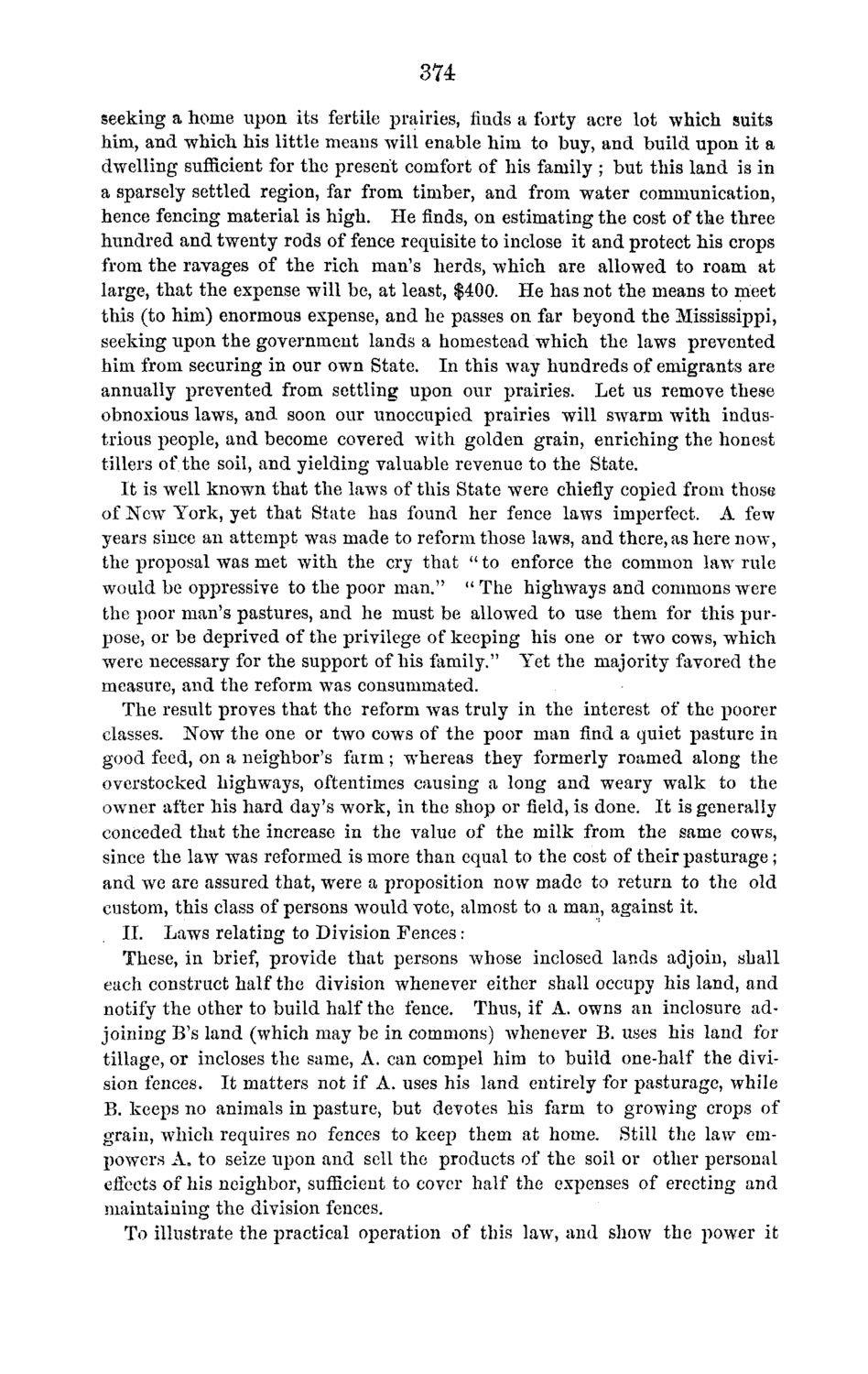| |
| |
Caption: Board of Trustees Minutes - 1870
This is a reduced-resolution page image for fast online browsing.

EXTRACTED TEXT FROM PAGE:
374 seeking a home upon its fertile prairies, finds a forty acre lot which suits him, and which his little means will enable him to buy, and build upon it a dwelling sufficient for the present comfort of his family ; but this land is in a sparsely settled region, far from timber, and from water communication, hence fencing material is high. He finds, on estimating the cost of the three hundred and twenty rods of fence requisite to inclose it and protect his crops from the ravages of the rich man's herds, which are allowed to roam at large, that the expense will be, at least, $400. He has not the means to meet this (to him) enormous expense, and he passes on far beyond the Mississippi, seeking upon the government lands a homestead which the laws prevented him from securing in our own State. In this way hundreds of emigrants are annually prevented from settling upon our prairies. Let us remove these obnoxious laws, and soon our unoccupied prairies will swarm with industrious people, and become covered with golden grain, enriching the honest tillers of the soil, and yielding valuable revenue to the State. It is well known that the laws of this State were chiefly copied from those of New York, yet that State has found her fence laws imperfect. A few years since an attempt was made to reform those laws, and there, as here now, the proposal was met with the cry that " to enforce the common law rule would be oppressive to the poor man." " The highways and commons were the poor man's pastures, and he must be allowed to use them for this purpose, or be deprived of the privilege of keeping his one or two cows, which were necessary for the support of his family." Yet the majority favored the measure, and the reform was consummated. The result proves that the reform was truly in the interest of the poorer classes. Now the one or two cows of the poor man find a quiet pasture in good feed, on a neighbor's farm; whereas they formerly roamed along the overstocked highways, oftentimes causing a long and weary walk to the owner after his hard day's work, in the shop or field, is done. It is generally conceded that the increase in the value of the milk from the same cows, since the law was reformed is more than equal to the cost of their pasturage; and we are assured that, were a proposition now made to return to the old custom, this class of persons would vote, almost to a man, against it. II. Laws relating to Division Fences: These, in brief, provide that persons whose inclosed lands adjoin, shall each construct half the division whenever either shall occupy his land, and notify the other to build half the fence. Thus, if A. owns an inclosure adjoining B's land (which may be in commons) whenever B. uses his land for tillage, or incloses the same, A. can compel him to build one-half the division fences. It matters not if A. uses his land entirely for pasturage, while B. keeps no animals in pasture, but devotes his farm to growing crops of grain, which requires no fences to keep them at home. Still the law empowers A, to seize upon and sell the products of the soil or other personal effects of his neighbor, sufficient to cover half the expenses of erecting and maintaining the division fences. To illustrate the practical operation of this law, and show the pow^r it
| |